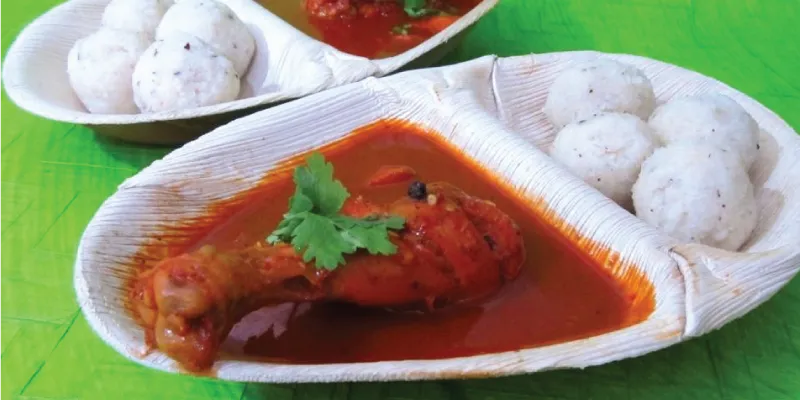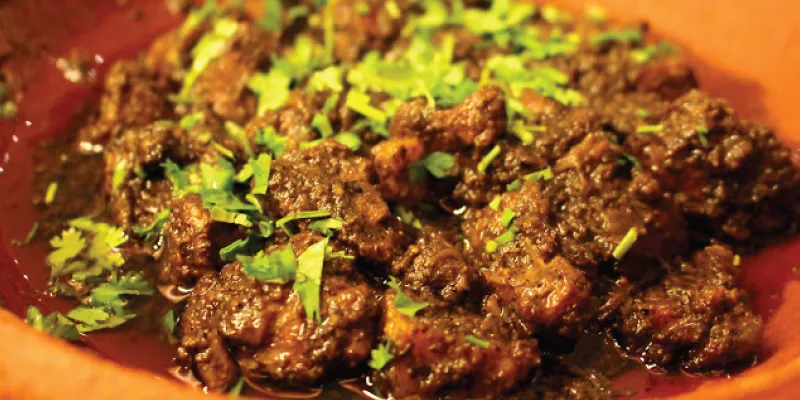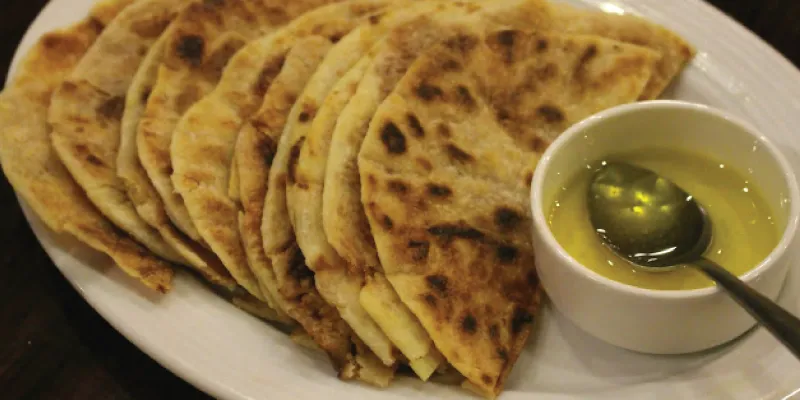Malnad Magic: Here’s a unique cuisine to try at home this weekend
As most of us are at home during the COVID-19 lockdown, why not take the time to explore various cuisines and learn about them. Here’s a lowdown on magnificent Malnad fare
One of the unsung culinary gems of Karnataka featuring a robust mélange of Mangalorean and Kodava food is the unique cuisine of Malnad, characterised by the use of fresh vegetables, rich aromatic spices, freshly ground masalas and unusual local ingredients.
Located in the Sahayadri hills of Karnataka, the Malnad region is blessed by the majestic Tungabhadra which brings prosperity and bio-diversity to its fortunate populace. The culinary style is based on the imaginative use of local produce: consequently, ingredients such as tender bamboo, colocasia leaves, turmeric leaves, raw jackfruit and jaggery which would be considered exotic in other parts of the state but are fairly commonplace in a Malnad kitchen.
Classic Malnad dishes
The classic Malnad-style Koli Saaru, prepared with khus-khus (poppy seeds) and roasted coconut might look like a common or garden chicken curry, but it's sure to surprise you with its robustly spicy taste.

Chicken with dumplings is prepared on special occasions
It pairs perfectly with soft rice dumplings Kadubu or with healthy Ragi Mudde or best of all, the crisp rice rotti. Often prepared on special occasions in Malnad households, this dish is bound to bring back nostalgic memories of grandma’s cooking.
Mutton is a favourite in many households and the best-known dish is Mamsa Chaaps, mutton ribs simmered in a delicious blend of herbs and spices redolent with green chilli, ginger, garlic, cloves and cinnamon and thick coconut milk.
Pork is also relished by many planters and the local version is not quite as tangy as the Kodava Pandi Kari, which is made with the vinegar distilled from the sour kachampuli fruit found on coffee estates. The Malnad version is a little more peppery and smokier and as expected, tastes better after a couple of days in the pot.
Flavour and balance
Fish comes in from Coondapur and is also quite popular with locals who make a superb fish curry enlivened with the use of raw mango. The pickles and chutneys of this region are magical: intensely flavourful, perfectly balanced and about as subtle as a grenade.
The Halasina Kayi Happala, ever so slightly different to the version prepared across the border in Kerala, is probably the only time you can feel virtuous about eating fried food. Raw jack fruit is steam cooked, mashed, pressed and sun-dried and fried in refined oil to produce this classic.
Ultimate comfort food

Traditional Malnad food is rich in flavours
Rasam lovers will relish the Appe Huli or Appe Rasa which is a speciality of this region. This tangy, spicy saaru is redolent with the flavour of asafetida and raw mangoes and can either be enjoyed as a soup, sipped as a digestive between meals or enjoyed with hot rice topped with ghee. It is the ideal comfort food when you're homesick or hungover.
The traditional Pongal staple, kosambri, takes on a new avatar in Malnad. It is bursting with flavour and nutrition. This moong dal and carrot salad or hesarubele carrot kosambari is prepared using soaked raw green gram dal and grated carrot. It’s very easy to make and once you have mastered it, dish it up at your next dinner party and sit back and enjoy your Masterchef moment as you bask in the compliments of your guests.
Chutneys galore
Malayalees swear by pineapple raita but Chickmagaloreans prefer Thimare or Ondelaga Thambli, which is a delightful curd-based chutney made, with Brahmi leaves, coconut, and curd, often served as a starter or palate cleanser in a multi-course oota. Best of all, there is no frying or cooking involved since the recipe calls for raw Brahmi or Ondelaga leaves to be ground with freshly grated coconut, curd and a seasoning of chilli, mustard and curry leaves.
Regional variations

There are many regional variations of traditional South Indian dishes
Akki rotti is a staple of Karnataka with many regional variations. The Malnad version is prepared using rice flour, onion, green chilli, cumin and curry leaves although some households cling stubbornly to akki rotti with coriander. Like, dude, whatever floats your boat, you pay your money and take your choice.
Pathrode, which Mangaloreans insist on calling pathrade, is a delicious breakfast recipe made with freshly picked nettles, yes you read that right, the leaves of the colocasia plant. Maharashtrians will be more familiar with the term, Patra Vadi or Patra vada.
The recipe calls for colocasia leaves to be smeared with a spicy rice and coconut paste, which are then rolled and cut into rounds so that the layers are visible and then steamed.
You can enjoy the freshly steamed pathrode with a generous dollop of white butter or if you can afford the calories, tuck into a few slices shallow fried in cold pressed extra virgin coconut oil.
Culinary delights
Halasina Hannina Mulka is a local dessert made with jack fruit, rice, coconut, salt, and jaggery. These jackfruit fritters are easy to prepare and taste quite divine. A classy variation is the jackfruit idli made with overripe fruit and steamed in banana leaf for that additional burst of flavour. These idlis are served with a healthy dollop of ghee and once you taste one you will find it as addictive as tobacco.
If you are a dedicated foodie, not one of those namby-pamby food blog Instagrammer types, and you can handle unspoilt nature, sweeping mountain ranges, gushing waterfalls, birdsong and intense flavour, then forget about Bombay Meri Hai. Instead salaam your dosts by taking them to Chikmagalur for some Malnad magic.









